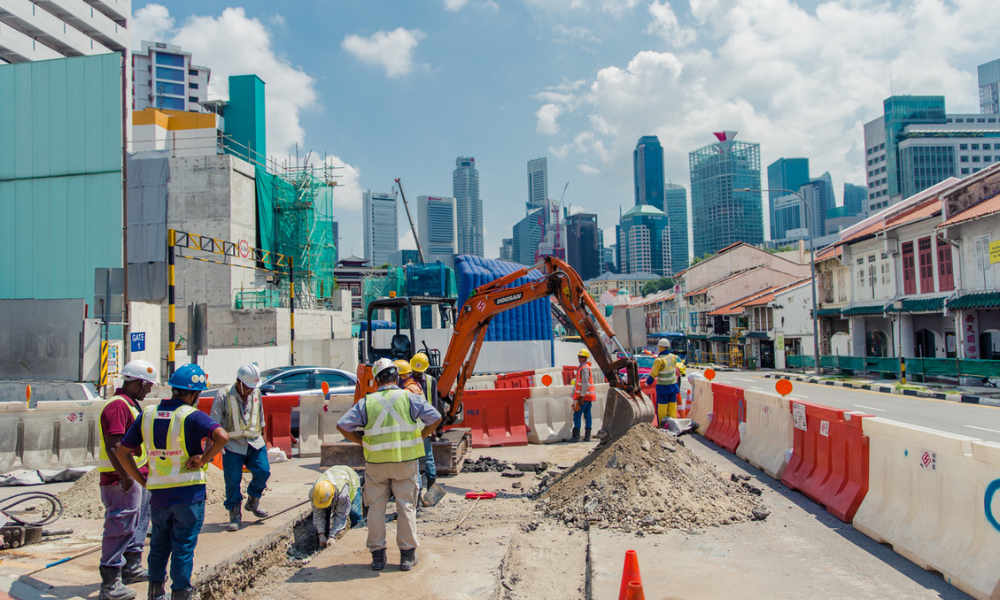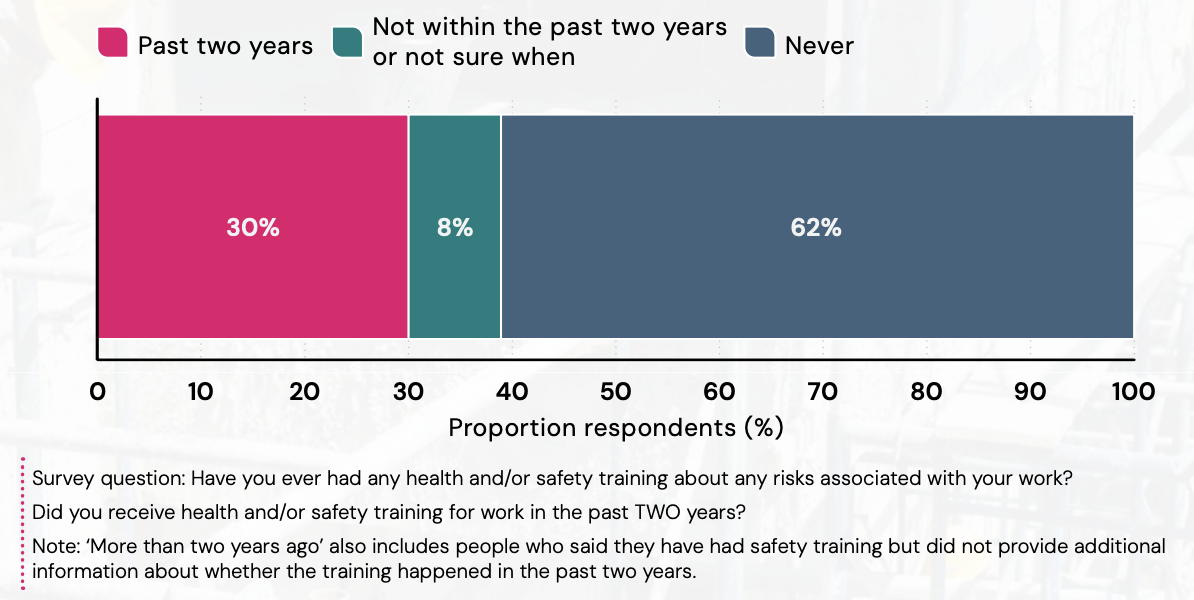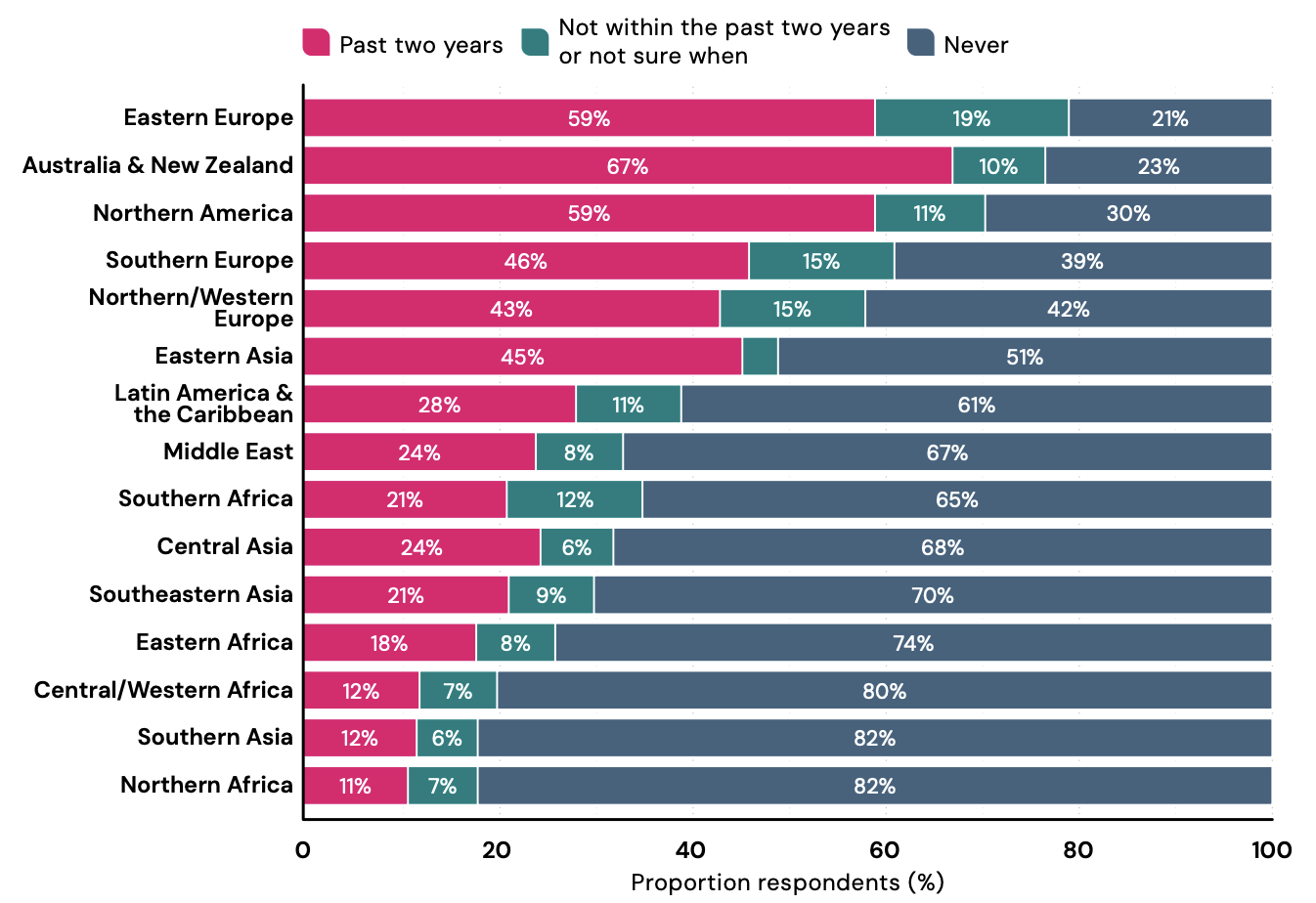
Nearly 700 million workers suffered 'serious harm' at work in past two years

More than three in five employees across the world have never received training on occupational safety and health despite emerging risks and challenges in the workplace, according to a new report.
The World Risk Poll 2024 Report, which covered nearly 142 countries and territories, found that 62% of the respondents have never received OSH training on risks associated with their work.
Over a third of the respondents said they have received OSH training, with 30% of them having taken place in the past two years.

Source: Lloyd's Register Foundation
By region, Northern Africa and Southern Asia reported the highest rates of respondents who said they have never received OSH training, with 82%.
On the other hand, Eastern Europe and Australia and New Zealand reported the highest percentage of respondents who received OSH training in the workplace.

Source: the Lloyd's Register Foundation
The findings come as 18% of the respondents said they personally experienced serious harm at work in the past two years. This is equivalent to around 667 million adults.
The rates of workplace harm are the highest in the low- and lower-middle-income countries, according to the report.
Workers in fishing, construction, and mining jobs were also more likely to be harmed at work, as well as those in less stable forms of employment, such as part-time or self-employed workers.
But concerns about workplace harm aren't given much thought by workers unless they've experienced it, the report revealed.
"Worry levels about workplace harm increase significantly as exposure to it — either by knowing someone harmed or personally experiencing harm — increases," the report stated.

Source: Lloyd's Register Foundation
Ruth Boumphrey, chief executive of the Lloyd's Register Foundation, said they hope the report will encourage "meaningful change" in regions where effective OSH training is not fully realised.
"Ultimately, effective OSH training not only has the potential to reduce workplace accidents, but also fosters a safety-first culture, ensuring that both employers and employees are better equipped to identify hazards, report incidents, and maintain productive, healthy working environments," she said in the report.